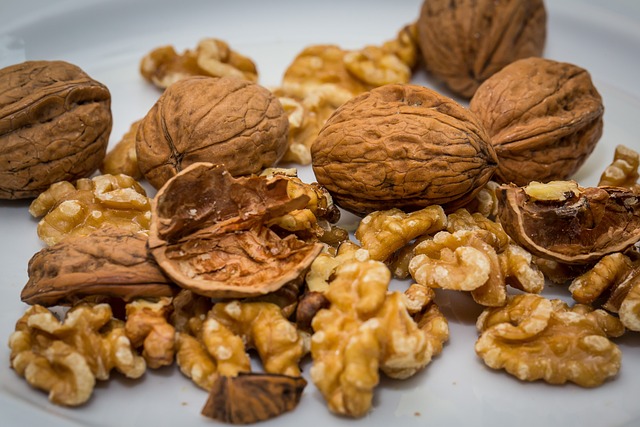Vesna and Slobodan Ivanović moved from Jagodina to the village of Dragocvet, six kilometers away from the city, where they started growing walnuts, choosing a quieter rural environment. On the property of over one hectare, Slobodan planted 270 walnut seedlings seven years ago, mostly of the American Chandler variety, with a smaller share of the Lara and Franket varieties. These varieties are known for their high yield and resistance, and the fruits are appreciated for their better taste and lighter kernel color compared to domestic varieties. Although the plants are still young, it is expected that the chandler in full fruition will produce about 20 kilograms of fruit per tree, which in dense planting could provide 4-5 tons per hectare.
Slobodan decided to grow walnuts because of the relatively lower labor requirements and the possibility of keeping the fruit in the shell for a long time. The price of cleaned walnuts of the Chandler variety at the purchase last year was about 1,000 dinars per kilogram. On the other hand, domestic walnuts on the market were cheaper. The walnut is attractive for the market because it is in short supply and has a wide range of uses, including the industrial application of the shell.
What is being done so that the yields of walnuts are as they should be?
During the preparation of the land, Slobodan did a soil analysis in order to adjust the growing conditions. Walnut does not tolerate acidic soil and excessive moisture, so by adding limestone and other minerals, it regulated the pH value. He also applied furrowing, a process of deep plowing, to allow the spread of the root system. He planned a dense planting with a distance of 7 meters between rows and 5 meters between trees, which corresponds to the smaller crowns of the new varieties. For irrigation, he uses a drop-by-drop system and his own well, adjusting watering to weather conditions and plant needs.

Ivanović faced challenges in breeding. In the first years, they had to replace more than 130 seedlings due to problems with the planting material, which resulted in uneven plant growth. Weather events, including frost and drought, significantly affected yields. The last two years brought them only a few sacks of fruit due to rotting and burns on the leaves. Despite these problems, with the support of state subsidies for seedlings, fencing and irrigation, they plan to expand the plantation to an additional 3.5 hectares, with 800-900 new trees.
Slobodan believes that growing walnuts is a long-term investment that will pay off over time. Despite the challenges, the Ivanovici are satisfied with their decision to devote themselves to this lucrative fruit growing business.
Source: Good morning
Source: boljazemlja.com


